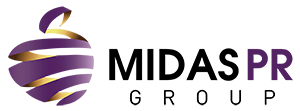Ethics is often described as the moral standards that help us discern the right decisions to make in both social and professional situations.
The world of PR often gets an unfair rap on the topic of ethics; the common misconception is that PR is all about propaganda, spin and distorting the truth to manipulate audiences.
Whether you’re someone who thinks this might be true, or if you’re someone who faces these questions in your working day, we’ll answer them in this edition of Muse as we focus on PR ethics and their importance.
What are PR ethics?
PR pros’ professional choices and strategies are commonly guided by values that constitute the codes of ethics outlined by several credible and international PR associations worldwide, such as the PRCA or the CIPR.
These values include, but are not limited to, honesty, openness, loyalty, impartiality, respect, and integrity.
The codes are in place to guide communication practitioners on how their client or company should conduct itself in front of its stakeholders and what kinds of messages should be published to maintain a professional standard of work.
Why do PR ethics matter?
As the responsible party for developing narratives on behalf of clients and a trusted source of advice, PR pros should be well aware of the implications of their tactics.
This is particularly true in the post-truth era, where disinformation and propaganda proliferate online.
Performing PR tasks with an ethical mindset is essential to earning trust and building relationships. Failure to comply with generally-accepted moral codes of practice by ‘spinning’ news, for example, would put the reputation of the PR practitioner and their client at risk.
The power of ethical PR
Ethical PR pros can positively influence decisions made by the C-suite on their business strategies and minimise reputational damage in the face of crises.
For example, PR practitioners can recommend the proper articulation of their clients’ ESG strategies to lay the foundations for attaining their long-term sustainable goals.
Similarly, in times of crises, PR pros are responsible for advising their business or clients on how to deliver critical messages to represent concerned stakeholders with honesty and accountability. Not only is this the right thing to do, but it also helps rebuild stakeholder trust.
Despite different credible codes of ethics, unfortunately, certain unethical practices mean the PR industry continues to meet with negative perceptions.
Stay tuned for our next article to find out what immoral acts must be avoided as a communication practitioner.


